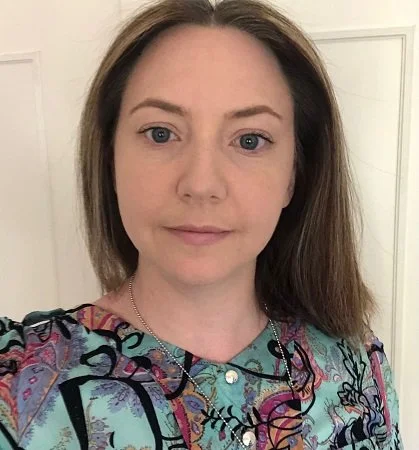Emotional dysregulation as a key component of ADHD
Understanding that emotional dysregulation is a brain-related symptom in individuals with ADHD can counter shame and offer hope. Counselling psychologist Ronel Carver discusses ADHD and its effects, executive functioning deficit, emotional dysregulation and rejection sensitive dysphoria. Concerning ADHD and emotional dysregulation, she highlights different treatment options - particularly BWRT, which changes neural pathways to elicit a preferred response. Ronel outlines the advantages of addressing challenges with brain-based therapy.
If you’re new to podcasts, simply click on the arrow to listen to Ronel and Mariette, or on the download button to download the conversation onto your device.
In ep. 230 of the weekly podcast series Calm, Clear & Helpful, counselling psychologist Ronel Carver considers
neurodivergent conditions, including Attention-Deficit/Hyperactivity Disorder: usually conditions people are born with which can’t be prevented or cured, but can be managed well
the 2 types of ADHD: 1 inattentive, involving attention and concentration challenges and
2 combined, involving attention, concentration, hyperactivity and impulsivity
checklist of common symptoms, including forgetfulness, overwhelm, procrastination, low frustration tolerance, racing thoughts, poor sense of time, restlessness and impatience
co-morbid conditions. e.g. anxiety, mood or substance disorders
an explanation of emotional dysregulation - a brain-related symptom
when the brain is in overdrive or in shutdown
how Executive Functioning deficit, associated with ADHD, affects the brain’s ability to self-regulate
issues with regulation: life as a series of highs and lows
individuals with ADHD who are good at masking their symptoms or challenges
“what does your brain look like?”
rejection sensitive dysphoria (RSD) - intense emotional pain triggered by real or perceived rejection, criticism, punishment, setback or failure
the bedrock of treatment: proper assessment by a trained psychologist, psychiatrist, neurologist or developmental pediatrician
medical and non-medical treatment options
medication: yes or no?
BrainWorking® Recursive Therapy (BWRT), based on neuroscience
advantages of BWRT, including working with the part of the brain where the dysregulation happens, even before you’re aware of it
what to expect from a BWRT session
addressing the triggers linked to an individual’s emotional dysregulation
whether this involves a long-term intervention
whether BWRT involves a long-term intervention
advice for the parents of children with ADHD.
Scroll down to About for more information on Ronel and BWRT.
Feel free to click on Home and browse this website for articles and podcasts on more fulfilling love relationships, easier parenting, and upping your emotional well-being. Subscribe to my monthly newsletter to get a gentle nudge when new content is alive!
Listen to clinical psychologist Rafiq Lockhat’s introduction to what BWRT® is and what it can do.
Lees ook ‘n Afrikaanse artikel oor Brainworking® Recursive Therapy.
About Ronel
Ronel Carver is a counselling psychologist at WestPsych Psychologists in Roodepoort, Johannesburg. She works with children, teenagers, couples and families, doing therapy and assessment work across a broad range of problems. Ronel is passionate about working from a brain-based theoretical framework and uses BrainWorking® Recursive Therapy.
Website: https://www.westpsych.com/
Tel./Whatsapp number: 061 492 5714 - also for bookings
Facebook: Westpsych Psychologists
Email: appointment@westpsych.com
On BWRT:
Google “Youtube BWRT in 2” to watch a short animation on BWRT®
Find a BWRT® practitioner near you by visiting https://bwrtsa.co.za/ and clicking on “Find a practitioner” or going to https://www.bwrt-professionals.com/
More information at http://www.bwrt.org/ or Facebook: BrainWorking Recursive Therapy SA
The free podcast series Calm, Clear & Helpful is available on Apple Podcasts, Spotify, Pocket Casts, Player FM and Iono.fm – I hope you’ll subscribe!
Wellness coach Marina Wildt explains how ADHD presents differently in men and women, which is why women often remain undiagnosed.
Read how Terence Watts’ surprising background prepared him for “discovering” BWRT® and of the many things close to his heart. With personal photographs.
If you’re a wellness expert looking to expand your authority and reach, you’re invited to visit https://www.mariettesnyman.co.za/services
You can also listen to psychologist Hannelie Spies who explains how young adults with ADHD can benefit from BrainWorking® Recursive Therapy and coaching to improve Executive Functioning.
Original music by Mart-Marie Snyman
Thumbnail image: Unsplash. Model used
Photograph of Ronel Carver: supplied
